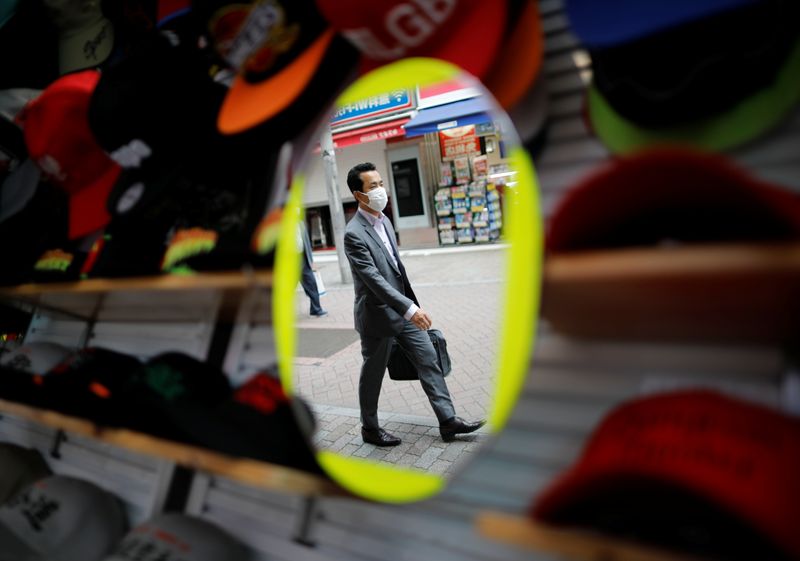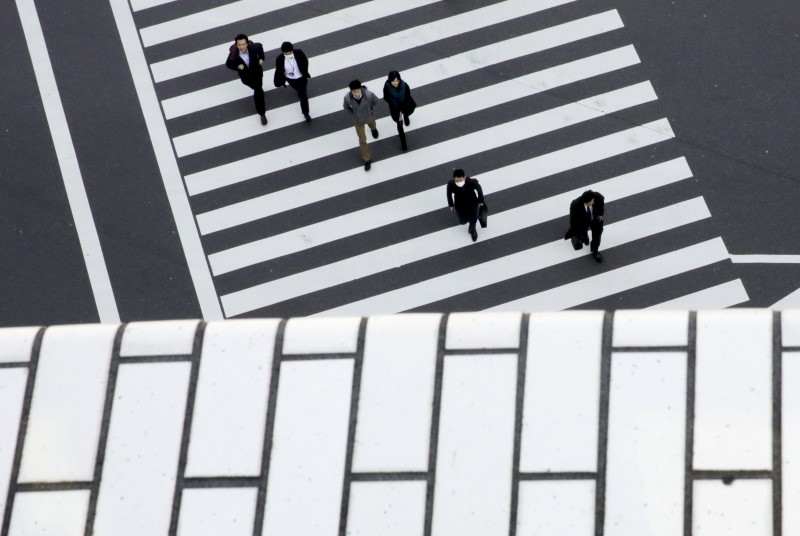By Leika Kihara and Kaori Kaneko
TOKYO (Reuters) - Japanese Prime Minister Shinzo Abe said on Monday that Japan will lift a state of emergency for Tokyo and four remaining areas later in the day but that it could be reimposed if the pace of infections picked up.
Social distancing curbs were loosened for most of the country on May 14 as new infections fell, but the government has kept Tokyo and four other prefectures under watch.
Abe also told a news conference that the total amount of stimulus from two economic packages would exceed 200 trillion
yen but it would still take considerable time to get back to normal life while controlling infection risks.
He added that Japan had managed to get the coronavirus infection under control in just one and a half months, in its own way, and that this showed the strength of the "Japan model."
Japan's economy minister told reporters earlier on Monday the government had received approval from key advisers to remove the state of emergency for all remaining regions.
"While the emergency state will be lifted, it is important to expand economic activity in stages as we establish a new way of living," Yasutoshi Nishimura said. He added that the head of the advisory panel had recommended close monitoring of Tokyo, Kanagawa and Hokkaido prefectures, where cases had fluctuated.
The world's third-largest economy has escaped an explosive outbreak with more than 16,600 infections and 839 deaths so far, according to NHK public broadcaster; however, the epidemic has tipped it into a recession and plunged Abe's popularity to multi-year lows.
An Asahi newspaper poll conducted at the weekend showed Abe's support rate at 29% - the lowest since he returned to power in late 2012 - and disapproval at 52%. The results mirrored a Mainichi newspaper survey published on Saturday.
A government task force was set to convene following Abe's new conference, and the lifting state of emergency would take effect after that meeting.
Tokyo Governor Yuriko Koike has previously said the capital would move into "stage one" of loosening restrictions, once the state of emergency was removed. That would allow libraries and museums to reopen, and restaurants to stay open until later in the evening. Subsequent stages would see theatres, cinemas and fairgrounds reopen.
Tokyo reported 8 new infections on Monday, media said.
TWO-FIFTHS OF GDP
To support an economy on track for its deepest slump in postwar history, the government is considering fresh stimulus worth 100 trillion yen ($930 billion), mostly comprising financial aid for companies, the Nikkei newspaper reported on Monday.
The package, to be funded by a second supplementary budget, would follow a record 117 trillion yen spending plan deployed last month.
The combined stimulus would bring the total spending in response to the pandemic to about 40% of Japan's gross domestic product.
The new package would include 60 trillion yen to expand loan programmes that state-affiliated and private financial institutions offer to firms hit by the virus, the Nikkei said. Another 27 trillion yen would be set aside for other aid including capital injections for ailing firms, the paper said.
The government is expected to approve the budget, which will also include subsidies to help companies pay rent and wages, at a cabinet meeting on Wednesday.
Japan's economy slipped into recession in the last quarter, and analysts expect another 22% contraction in April-June.

